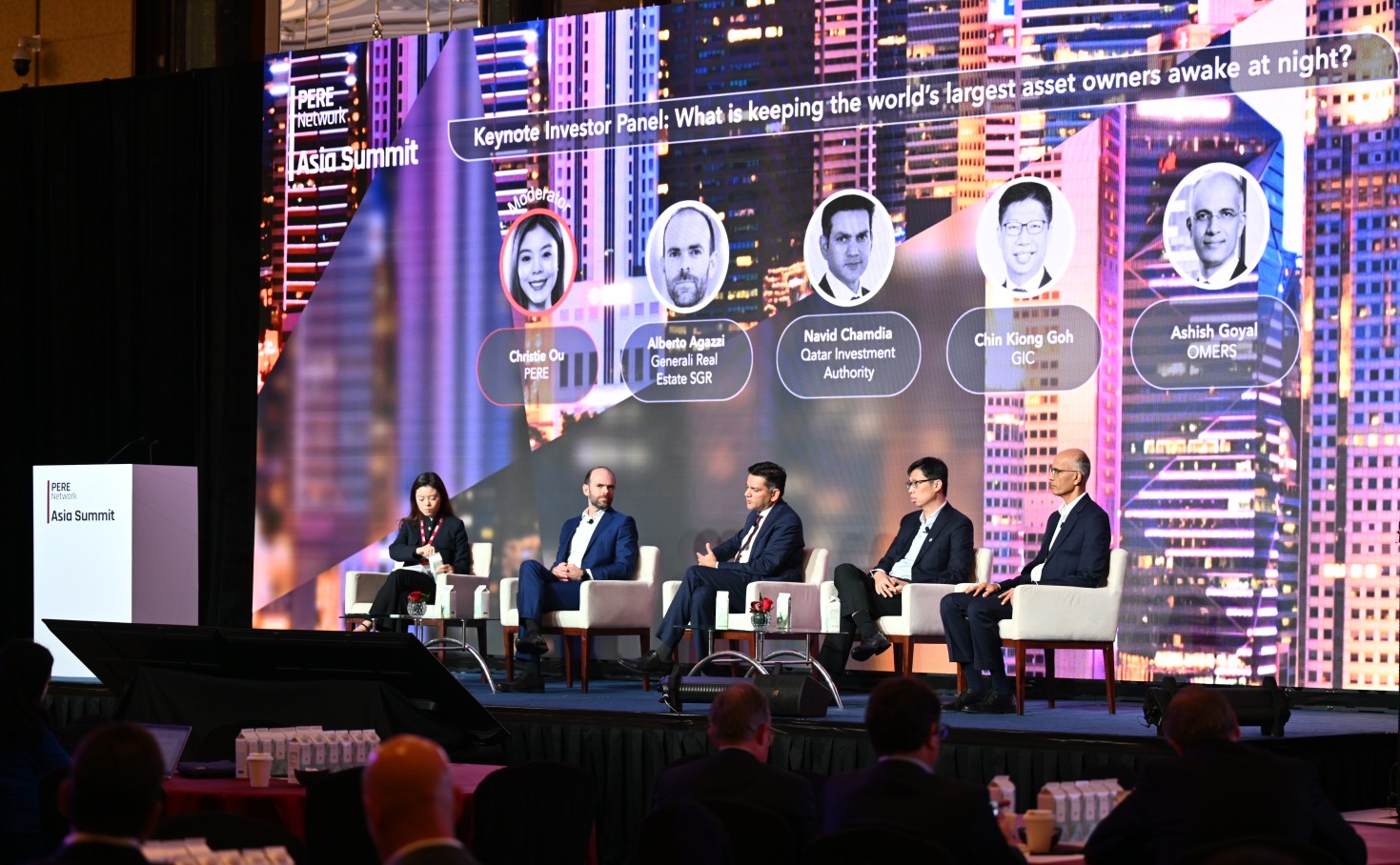3/19/2024

In today's dynamic real estate landscape, long-term investors like QIA are well-placed to capitalize on the opportunities presented by key sector trends: debt funding gaps, changing demand patterns, ESG regulations, digitalization, and artificial intelligence. Strong local partnerships also remain crucial to identifying the best asset opportunities across global markets. QIA’s Head of Real Estate, Navid Chamdia, recently shared his insights with industry leaders during a keynote panel at the PERE Asia Summit held in Singapore in February.
Recent market fluctuations present opportunities for long-term investors.
In recent years, interest rates have dramatically increased, particularly in the US and Europe, though less so in Asia, affecting the cashflow profile of real estate assets. We have been focused on effectively managing these risks, alongside shifts in consumer/tenant demand for certain asset types. At the same time, this environment has led to new opportunities for long-term investors such as QIA.
As a sovereign wealth fund, we take a longer-term view of real estate investments and have greater flexibility to enter deals at different phases and ride through market cycles.
Digitalization is driving exciting new subsector growth across markets.
We approach our real estate investments through the perspective of the entire ecosystem, considering asset quality, location, sector trends, community impacts, and macroeconomic factors.
Digitalization trends are creating new opportunities in subsectors such as data centres and logistics, with emerging growth hubs in key cities in USA, China, India, Japan, and other markets across Southeast Asia.
Building the right local partnerships is crucial.
Our market and sector teams collaborate closely with local partners who possess deep market insights, ranging from understanding of tenant needs, execution capabilities to procuring wider infrastructure needs – these partnerships enable us to find the right assets at the right time in key target markets and real estate subsectors.
ESG credentials and AI integration will be key to future-proofing assets.
Real estate assets with strong ESG credentials present significant opportunities for sustainable value creation and will determine the competitiveness of assets in the future, given evolving tenant expectations and commitments to ESG goals.
The integration of AI technology also promises to be transformative for the real estate sector, from an operational efficiency perspective, dramatically improving energy, heating and cooling systems as well as reducing facility maintenance costs.
We have supported the development of some of the most sustainable and energy efficient real estate projects in Europe and Asia, including Asia Square Tower One in Singapore, where our targeted investments have helped increase energy and water efficiency by almost fifty percent.
Sustainability will continue to be a core pillar of our investment approach in the real estate sector, underpinned by our work and commitments as one of the founding partners of the One Planet Initiative.